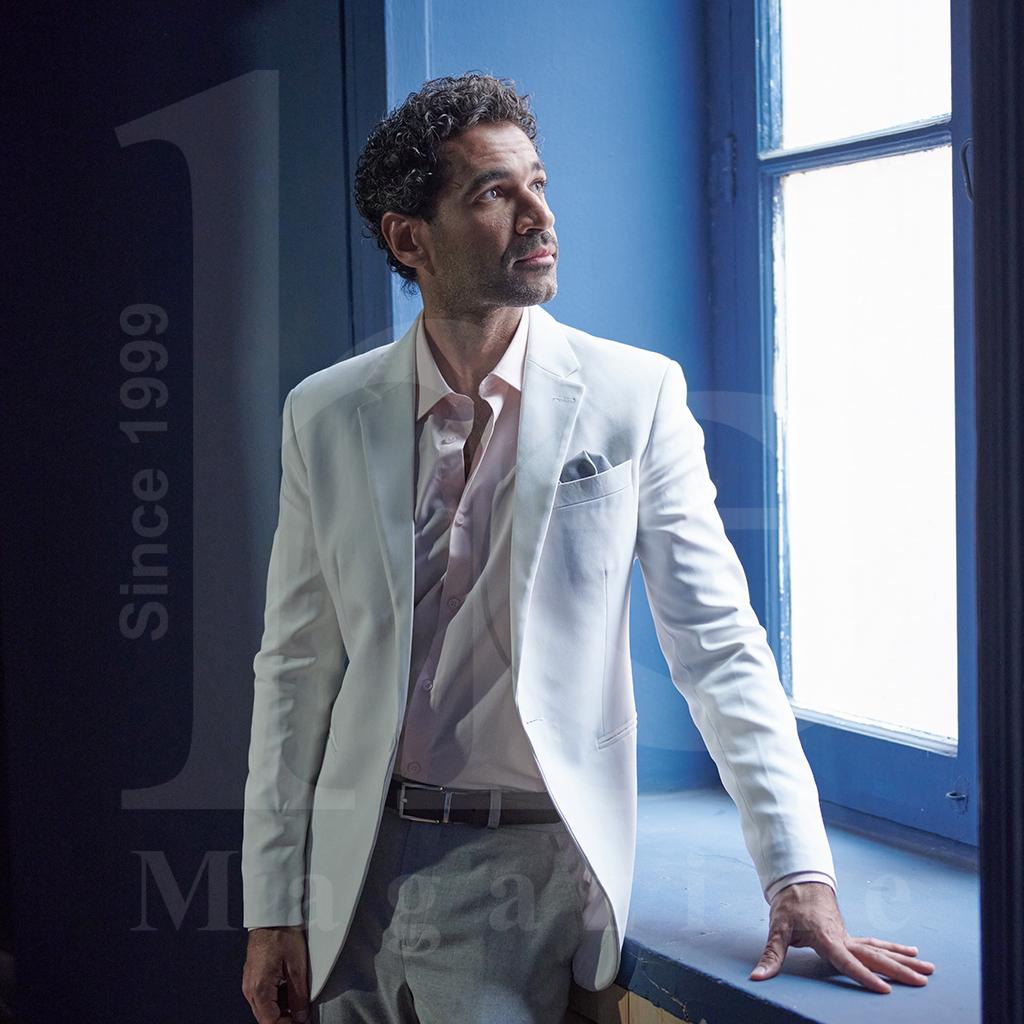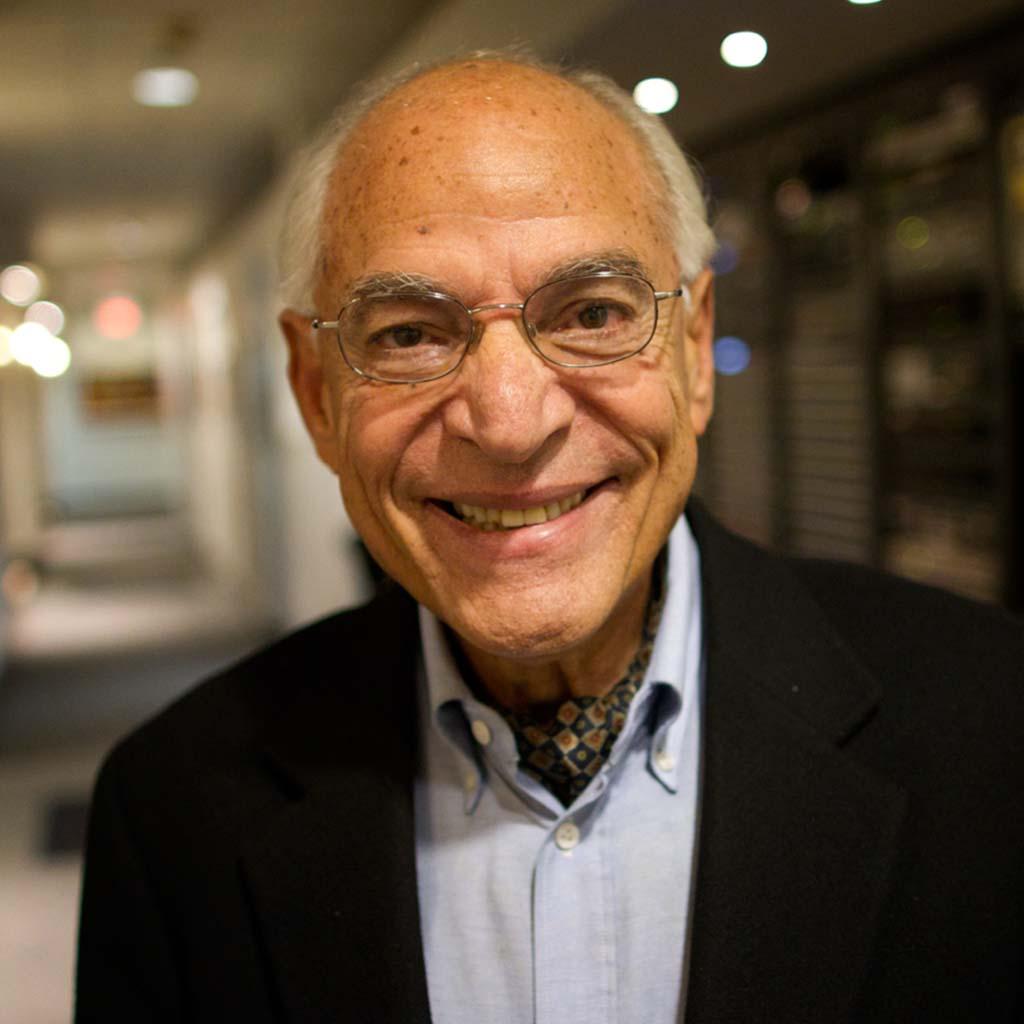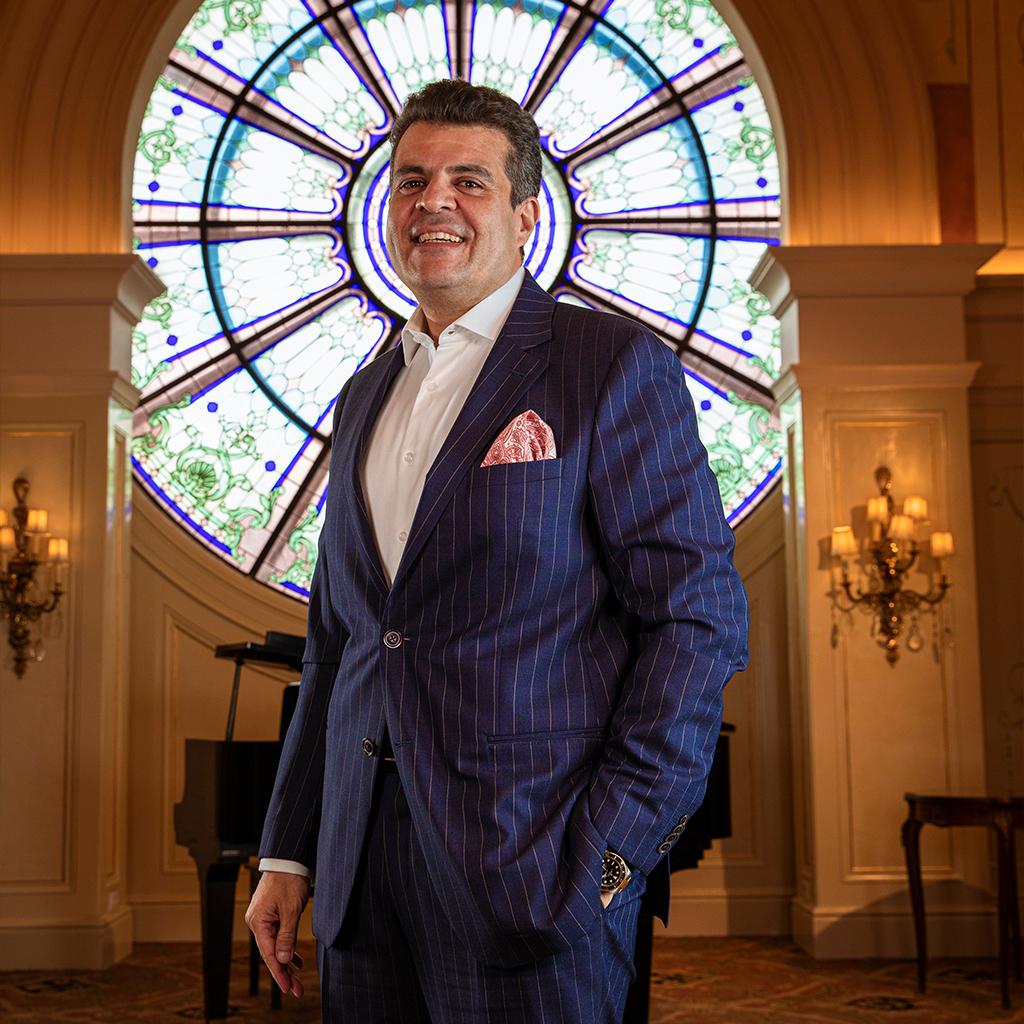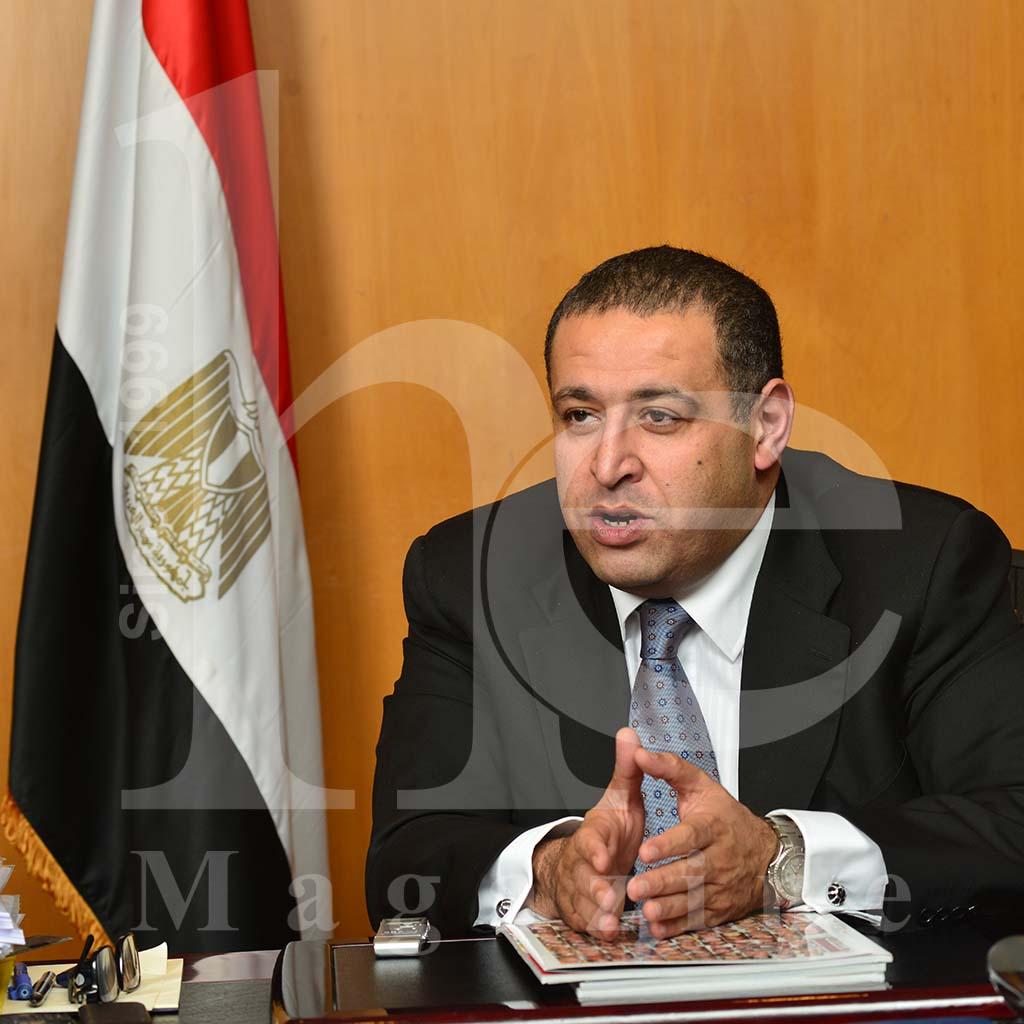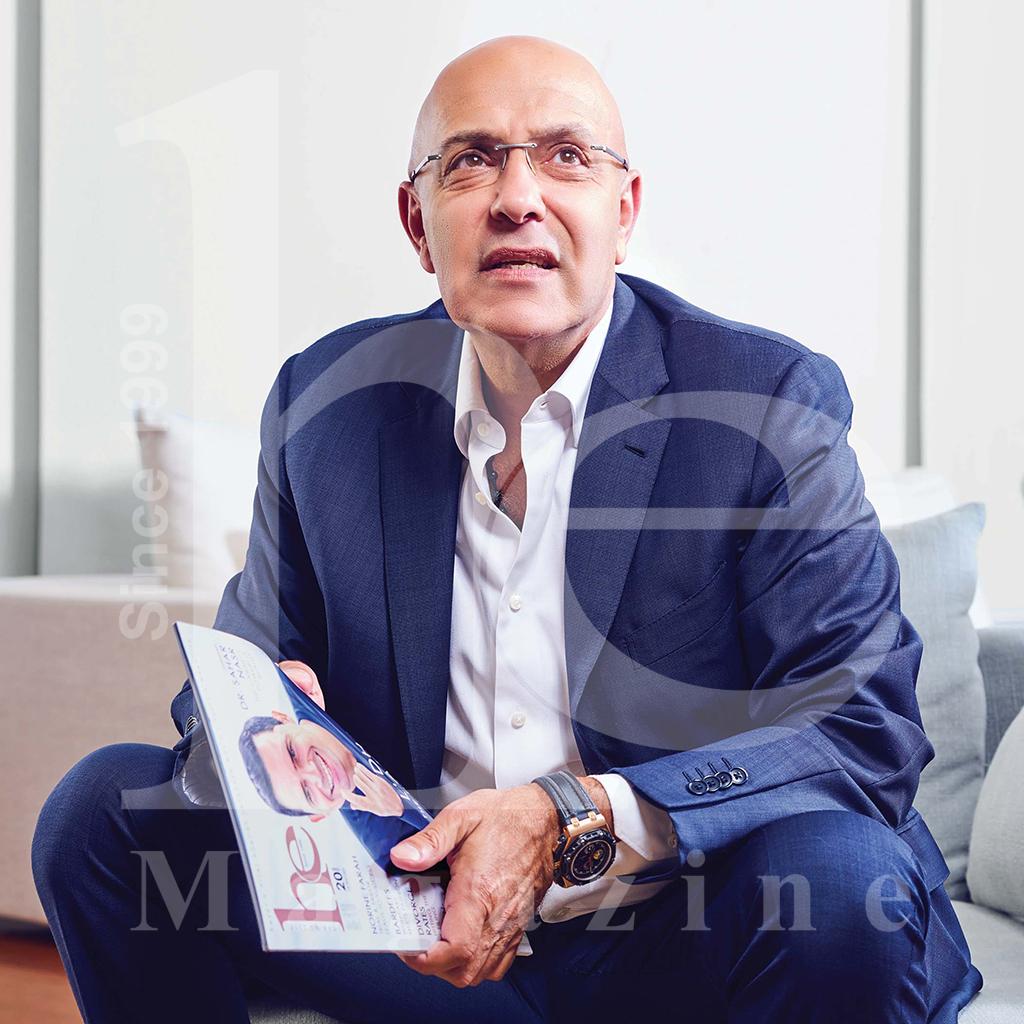
Date: 2018-10-01
In this HE Magazine article, the private Ahmed Sabbour opens up about his personal life and shares his outlook and visions for the real estate market in Egypt and beyond.
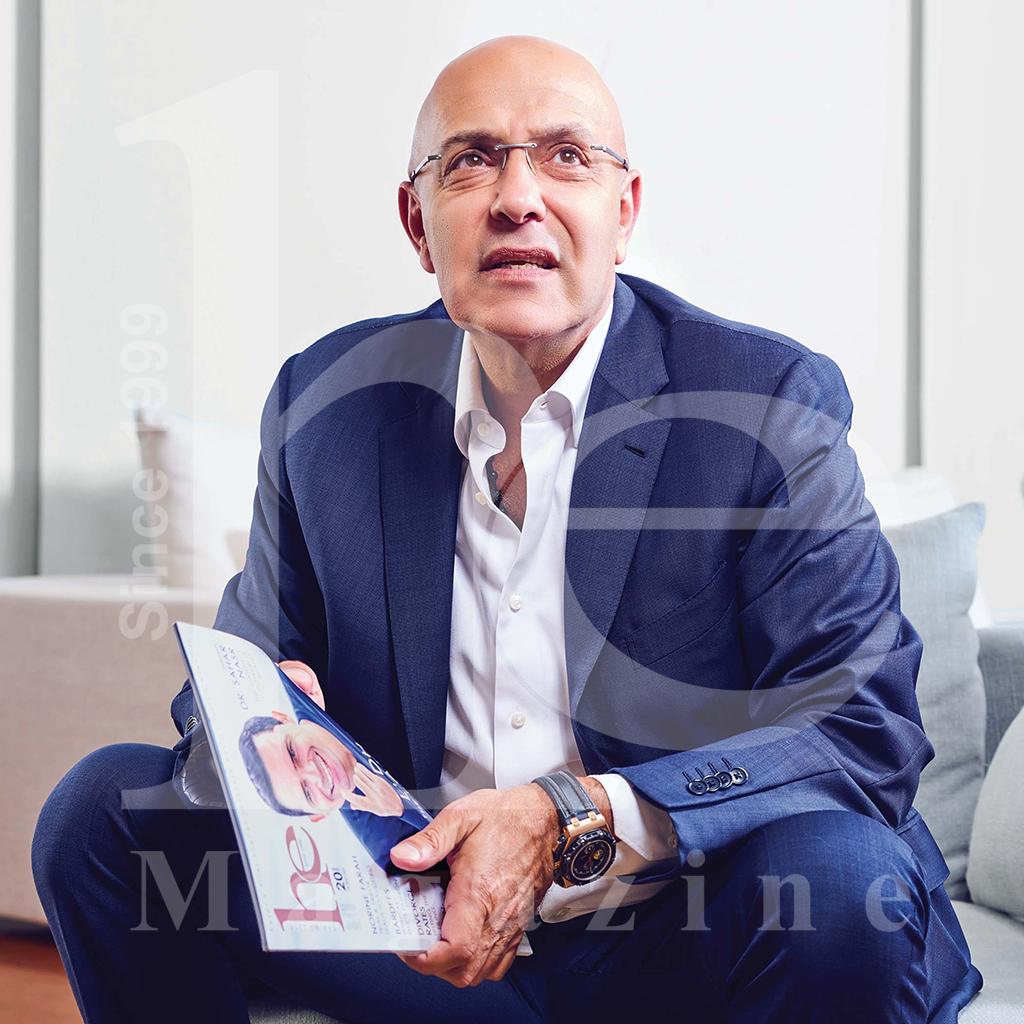
Undoubtedly, Hussein Fayek Sabbour has created a successful empire in real estate development and engineering consulting in Egypt. The business has really thrived on honesty and integrity, which Sabbour instilled in the business management of such an empire. Carrying the business torch are his sons Ahmed Sabbour and Omar Sabbour, who are both a well-known pillars in the field of construction and real estate. Ahmed in turn is priming his sons, Hussein and Aly for the Sabbour business.
In this HE Magazine article, the private Ahmed Sabbour opens up about his personal life and shares his outlook and visions for the real estate market in Egypt and beyond.
The Sabbour Legacy: Like Father, Like Son, Like Grandsons
Interview by: Amr Selim
Written By: Jehan Selim Harney
Photography by: Gearbox Studios Jr
He learned from his father Hussein Sabbour, a pioneer of engineering consulting in the Middle East, that “seriousness, efficiency, and organization rank ahead of intelligence and talent if one really wants to succeed in life”,and today, Ahmed Sabbour pretty much embodies all that and much more.
He has become a founder, board chairman, partner, and managing director of several multi-million Egyptian pound companies. Most importantly, he is the chief executive officer of Sabbour Consulting, one of the first engineering consultancy firms in Egypt. Over the past 50 years, the company has designed and supervised the construction of a large number of projects, including the Arkadia Commercial and Residential Complex, the underground regional line, and phase II of the electrical power stations in Katameya Hills as well as Sama’aAl Qahira and Dyar, to name a few.
In the 1990s, the engineer’s son who appreciates marketing and economics became partner, founder, and managing director of Egyptian Resorts Company (ERC), which owns Sahl Hasheesh Bay and has a capital of one-billion Egyptian pounds. He also was involved in a similar capacity in Oriental Resorts for Touristic Development, which has a capital of 90 million Egyptian pounds, as well as Sharm Egypt Company, Vista Real Estate Management, and Al Mohandessoon Development and Construction Company. Most importantly, in 1994 the savvy engineer became partner, founder, and manager director of Al Ahly for Real Estate Development, commonly known in the market as “Sabbour”. It is a joint venture with one of the largest financial institutions in Egypt and the Middle East, the National Bank of Egypt, which holds 40% of its capital.
The company has 57 projects under its belt, including commercial, residential, and touristic projects stretching from the New Capital city of Cairo to the North Coast and the Red Sea. The company is making a mark in selling properties that epitomize signature luxury, superb quality, and high comfort, built in line with environmental standards. Most recently the company won the bid to develop the first project in Al Mostakbal City, Green Square. It spans across 578 acres or 2.4 million square meters of land. It is built in partnership with El Mostakbal for Urban Development.
Sitting at a cafe in Heliopolis on Al Thawra Street, Ahmed Sabbour sips green tea ahead of his noon meeting. Dressed in a crisp, unbuttoned white shirt and a dark blue suit, Sabbour humbly attributes his success to another mantra he learned from his father: “Absolute integrity, honesty, and transparency as keys to success, in addition to maintaining good relationships with everybody we deal with.”
Sabbour’s father was the chairman of the Table Tennis Association for eight years and has been the chairman of the Egyptian Shooting Club since 1992. His contributions to the club and personal interactions with thousands of its members over the years have made many trust him and the “Sabbour brand”. Even the Sabbour employees seem personally invested in the business. “They really care for us and we always strive to nurture such deep human relationship at work,”the son says. And in dealing with other entities or partners, he learned another wisdom from his father: “There must be an added value that all parties can enjoy in any business transaction, so one plus one should not only equal two but possibly three or four.”

Such philosophy in dealing with the Egyptian market has done the Sabbour family well over the years. Sales for Al Ahly for Real Estate Development projects have reached EGP 4.5 billion this year. The company has pumped EGP 3 billion in construction projects, doubling its contribution from last year. “The company even seeks to increase its land ownership by six million square meters this year, 1.5 million square meters higher than what it already has under its belt.”
Sabbour isn’t slowing down as “the economy keeps growing”, despite periodic rumors warning of a “housing bubble in Egypt”. He mocks such rumors, affirming, “It is impossible for this to ever happen in Egypt… Not in my time or my children’s time or even grandchildren’s time.”
He puts his cup of green tea down and explains with confidence: “Such a bubble only happens when the market is hugely dependent on banks and their mortgages in financing the personal purchase of properties as is the case in the United States and other countries. Egypt, however, has a minuscule mortgage sector.” Egyptians mostly pay in cash.
As a developer, Sabbour’s company relies on its own capital, pre-sales, besides bank loans to keep up with the demand for homes that exceedingly surpass supply in Egypt. “There is already a deficiency of 3.5 million units in the market,” Sabbour says. In a country of nearly 100 million, “each year, the market witnesses a robust renewed demand, for example by people who seek to change residence or want to invest and by more than 500,000 newlyweds looking for their first new home.”
Their demands for housing units vary. “Sometimes there is a demand for luxury apartments, and at other times, there is a need for small decent apartments. Sometimes, we need to build huge villas, and at other times, small villas, twin houses, and town houses.” The varied demand points to a “healthy dynamic movement in the real estate market”.
But in recent times, costs have spiked by 42% mainly due to the floating Egyptian pound, he adds. “The cost of building a twin house became almost the same as that for building a luxury villa,” Sabbour remarks. He orders a bottle of water as he elaborates on the company tactic in coping with such high costs. “We opted to bring down the size of a 300 square meter twin house to 270 without reducing the number of rooms.” Of course, that requires careful maneuvering and meticulous attention to details in the design. “We want to offer a decent home value to our clients,” he emphasizes. “We don’t mind lowering our own profit margin in order to facilitate the marketing and buying of Sabbour properties.”
Despite the currency adjustment and rising costs, overall sales in the country still keep growing, particularly in Egypt’s North Coast. “We have seen unprecedented boom in sales,” Sabbour says. “In the fourth phase of Amwaj, for example, sales reached 15% ahead of our target numbers.” And, they will likely reach 20% by the year’s end, Sabbour predicts.
Additionally, GAIA, which stretches over 280 acres in Ras El Hekma, 190 km from Alexandria, sold “four times its target numbers only in a matter of two months”. The resort name refers to our living planet and to the Greek goddess of the Earth who is usually depicted as a beautiful woman surrounded by fruits.
“There has been a huge leap in the private sector services and facilities in the North Coast,” Sabbour explains, “in terms of restaurants, cafes, shopping malls, medical services, entertainment shows, and a buzzing nightlife.” For that reason, the company is launching Revit, which won Best Commercial Project at the 2018 Cityscape Egypt. The mall is built alongside Amwaj over 62,000 square meters.
Sabbour attributes the real estate market leap to improved state policies that limit bureaucracy. He praises the government’s efforts in shortening the time for processing permits and ministerial approvals. However, this is not enough to revitalize the business sector. In order to achieve “tangible success across the board,” Sabbour emphasizes, “we need to see further improvements soon.” He cites Germany as an example where permits take a week to process, while in Egypt “they still take months”.
The real estate business in Egypt is also booming as the state is more frequently offering “more pieces of land to bid on”. Such initiative is complemented by a statewide infrastructure improvement in building an efficient network of highways and new roads. Sabbour attributes much of that improvement to the “evident cooperation between different state agencies”. Such cooperation has paid off in the development of the New Alamein city, the New Capital, and the New Mansoura. More than 20 cities also will be developed in cooperation with the private sector.
“It is about time that provincial governorates have their share of development done right,” Sabbour remarks. In the past, he says, homes were built by individuals, not professional real estate developers. As a result, their projects are of a different caliber. “Professional developers can provide the services needed to contribute to a much better quality of life for all residents and the city as a whole.”
Moreover, Sabbour appreciates the government’s vision to export Egypt’s real estate to clientele overseas. He takes a sip of his water bottle and smiles, “We’ve been calling for this for more than a decade.” The visionary engineer has been partner, founder, and board chairman for Global Information and Technology Education Center company (GITEC) since 2003 in Dubai. In 2005, he also became partner, founder, and member of the board of directors in Al Arabia Real Estate Development Co., which has a capital of EGP 275 million. Recently, he established Land Mark, a Sabbour joint venture with other companies and individuals. It already executed two projects in Dubai: one was already sold and delivered in Dubai, and the other project is under construction. Moreover, Sabbour is starting a new project in Barcelona.
Therefore, it seems promising to see the Egyptian government reserving 2000 square meters in the next Cityscape in Dubai in 2019. State officials from the Ministry of Housing will be present to facilitate instant sales and conveniently answer questions by the expo guests.
Sabbour considers such government initiatives a good boost to Egypt’s already growing real estate market, which currently is witnessing record sales as a result of a gradual lowering of interest rates. “Investors are cashing their bank savings for higher revenue in the real estate market,” he says, describing such investment as “low risk which also comes with higher future returns”.
But Sabbour cautions against rising interest rates on bank loans for businesses. “This raises costs and affects investment decisions,” he says. Therefore, Sabbour pleads with the government to revisit the issue of increasing bank loan interests as part of its efforts to further boost the real estate sector.
After the high sales in 2018, Sabbour predicts a “slow pace in real estate sales the first quarter of 2019, but starting the second quarter, sales will be robust.” Why? The government’s initiative to sell Egypt’s real estate to clientele overseas, he says, will be felt in the second quarter next year. While real estate sales to foreigners already constitute 3% of total sales, Sabbour expects that number to reach 15% in the near future. Similarly, he expects real estate price values to grow by 14%.
Sabbour sees the growth in Egyptian real estate happening at the same time with the overall economic growth, which already jumped from 2.5% to 5.15%. “In the coming phase, economic growth may even hit the benchmark of 7%,”benefiting people across all socio-economic levels.
The real estate mogul, who wanted to follow his father’s footsteps years ago by also studying engineering, graduated from the University of Southern California in 1987. Sabbour now wishes to leave another legacy: “I wish to erect a classic building that resembles those old chic ones in downtown Cairo. I really admire tall ceilings, intricate design and elaborate ornamentation.” While the cost is prohibitive businesses-wise, given there will be higher ceilings, fewer floors, and much higher design costs, Sabbour still wants to do it someday. “Years down the road, I want my kids to proudly say: that’s the building my dad built.”
Obviously, Sabbour appreciates art. “Particularly, I love music,” he emphasizes. “I would even travel overseas amid my busy schedule just to catch a good music concert.”Perhaps his love for art is what pushed Sabbour to sway his daughter Mariam, 20, not to study engineering like him. She now studies architecture and interior design.
The name of Sabbour will certainly live on through his six children: Hussein, 26, Aly, 24, Mariam, 20, Nagwa, 17, Taleen 11, and Deyala, 8. Both Hussein and Aly followed their dad’s advice by not studying engineering. They graduated from business schools in London and currently work with Sabbour.
“Hussein enjoys business management, so he works hard to learn as much on the job here. But, he still has to prove himself before assuming a leadership position,” the proud father says. Sabbour likes to give Aly more time for horse riding. “He spends nearly 15 hours a day riding in the pursuit of world championship.”
Sabbour used to play basketball. Today, however, he doesn’t practice any sports. He proudly emphasizes, “I love watching football matches, particularly when Al Ahly team plays.” He ecstatically says, “I love, love, love Al Ahly.”
Whenever he can, the busy father likes to follow the progress of his sons in sports. He loves to watch Hussein competing in shooting and Aly horse racing. “But watching Aly competing tenses me up,” the father says, noting that Aly may combine his passion with the business of horse trading.
Sabbour, who works 14 hours a day and relaxes mainly by listening to music, admits he doesn’t balance work and family obligations well. “I really wish I could spend more time with my children, but I don’t,” he frankly says. The most family time he spends is on short trips. “But if we go on vacation in Egypt,” particularly at his two favorite destinations of Gouna and Sharm El-Sheikh, “I still work! My phone is like a curse,” Sabbour laughs. Ideally, the family spends more quality time vacationing together overseas, “but those trips are few and far between”.

The previous evening, Sabbour posed for a HE Magazine photo shoot that brought together the three Sabbour generations: father Hussein Sabbour, son Ahmed along with his two grandsons Aly and Hussein. Standing at the lobby of the family house in New Cairo, Sabbour notices daughters Taleen and Deyala rushing on their way out for training. “Come here first and give me a big hug,” he yells amid the shoot. Taleen and Deyala rush to hug their dad. For a few minutes, Sabbour seems to have forgotten about time and the photo shoot, embracing and kissing his daughters.
Amid the photo shoot, Hussein Sabbour quietly observes his family. The 82-year-old established an empire that stretches beyond Egypt as well as a caring family. He seems peaceful and happy. For now though, he keeps the Sabbour torch with sons Ahmed andOmar.The grandsons, he says, “have got to prove themselves enough before they lead the Sabbour business.”

